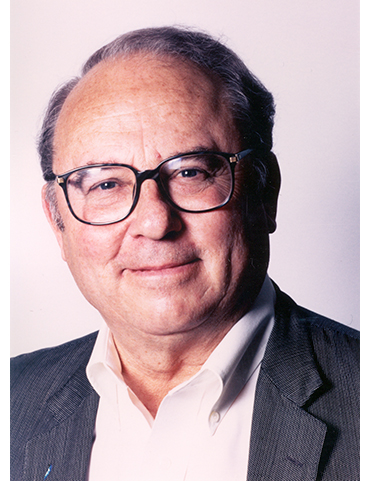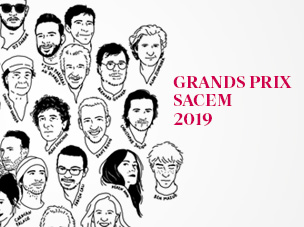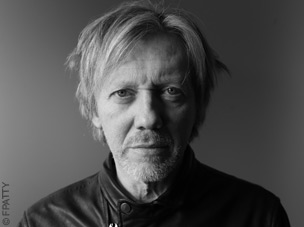The composer, arranger and conductor Alain Goraguer illuminated French music and cinema with his talent for sixty years.

In Breton, his surname means "the archer". Alain Goraguer never ceased to launch arrows of notes, and sharp wit, throughout a life of prolific passion. This discreet man was omnipresent in the studios and on stage alongside the most famous of them all: Mercouri, Mouskouri, Gréco, Bardot, Anne Sylvestre, Vian, Ferrat, Reggiani, Adamo, Moustaki, and many other greats!
Born in Rosny-Sous-Bois in 1931 to a Breton father and a Corsican mother, Alain Yves Reginald Goraguer learned to play the violin at the age of eleven. Later, a jazz fanatic and a pianist in Nice encouraged by Jack Diéval, he met Boris Vian in Saint-Germain-des-Prés. Vian even provided artistic direction for Alain's first record, Go...Go...Goraguer, in 1956. Together they wrote masterpieces such as Je bois, La Java des bombes atomiques, and Fais-moi mal Johnny.
From Vian to Gainsbourg, there was only one step, dedicated, among others, to a certain Boby Lapointe ("an extraterrestrial", Alain remembered), for a ten-year collaboration with classics such as “Aragon et Castille” or “La Maman des poissons”.
But it was with Serge Gainsbourg that he achieved total osmosis, "a real love at first sight". Between two orchestrations for France Gall (Poupée de cire, poupée de son, and Les sucettes), the first five albums from the author of Poinçonneur des Lilas, from Chant à la une ! (1956) to Gainsbourg Percussions (1964), were marked by Goraguer's signature. This original, personal and multicoloured touch would later be found in a hundred or so hits, from Georges Moustaki's Métèque to Adamo's Inch' Allah, or Yves Duteil's Virages.
His career as an orchestrator was dazzling and unique, culminating in the complete recordings of Jean Ferrat, Isabelle Aubret’s most beautiful songs, a large part of Reggiani's work and that of Nana Mouskouri, but let's not forget that he was also a magnificent composer: L’eau à la bouche, for Gainsbourg, Jazz à gogo for France Gall, three very pretty titles for Joe Dassin, La chanson de Paul and Le temps qui reste for Reggiani, not to mention the delicious cult hit "Tou tou you tou" for the Véronique and Davina show Gym Tonic.
As if that weren’t enough, Alain and his fertile talent also enriched film music: he worked on scores for more than 80 feature films, including J'irai cracher sur vos tombes (1959), L'eau à la bouche (1960), L'Affaire Dominici (1973) and La Planète sauvage (1973), whose marvellous orchestration has continued to inspire the most adventurous American beatmakers since the end of the 1990s, Madlib foremost among them. At the beginning of the 21st century, this tireless creator worked with, among others, Bruno Maman, and Abd al Malik.
Vice-president, administrator, and treasurer at Sacem until 2011, he participated in 2018 in Sacem's series of video interviews Les coulisses de la création (Behind the Scenes of Creation), in which he recounted with modesty episodes of some of his greatest collaborations.
Alain Goraguer was admitted to the Sacem as a composer in 1953 and promoted to full member in 1964.
“With a keen eye and a rare, but incisive word, Alain Goraguer put his immense talent at the service of the greatest French artists. Henri Dutilleux told me one evening that he admired him greatly. He was not the only one. We loved him, our Gogo, “the prince who never laughed" and great maestro of song. We will miss him! There are some silences that hurt, even after the most beautiful melodies...”
Claude Lemesle, author, Honorary President of the Sacem
Published February 15 2023


